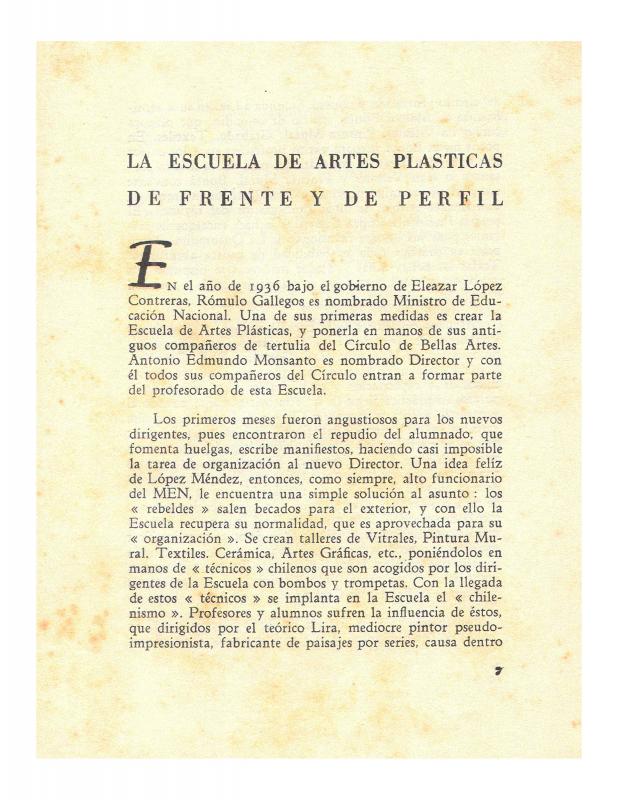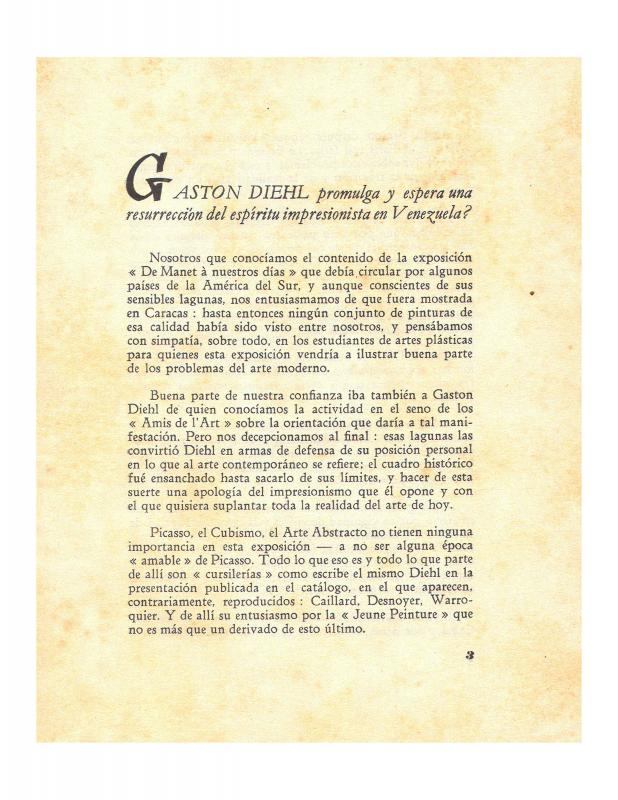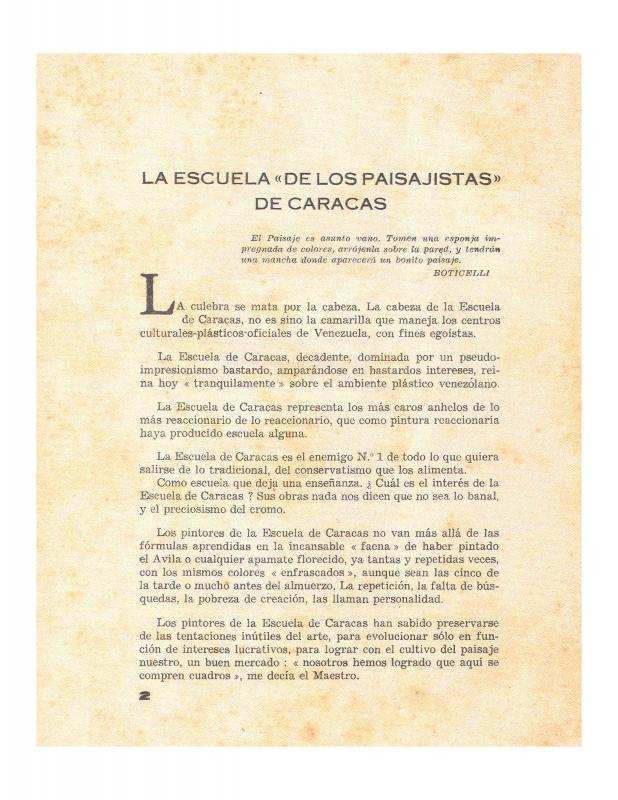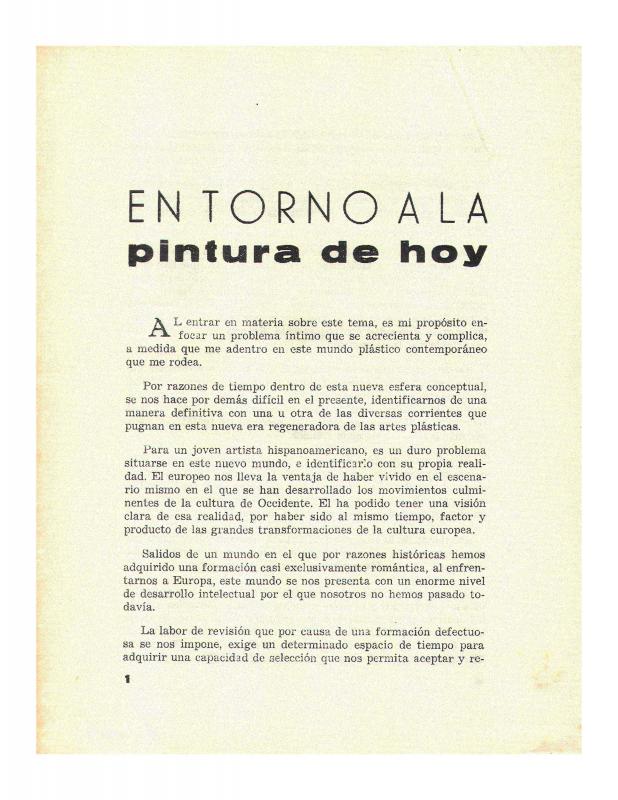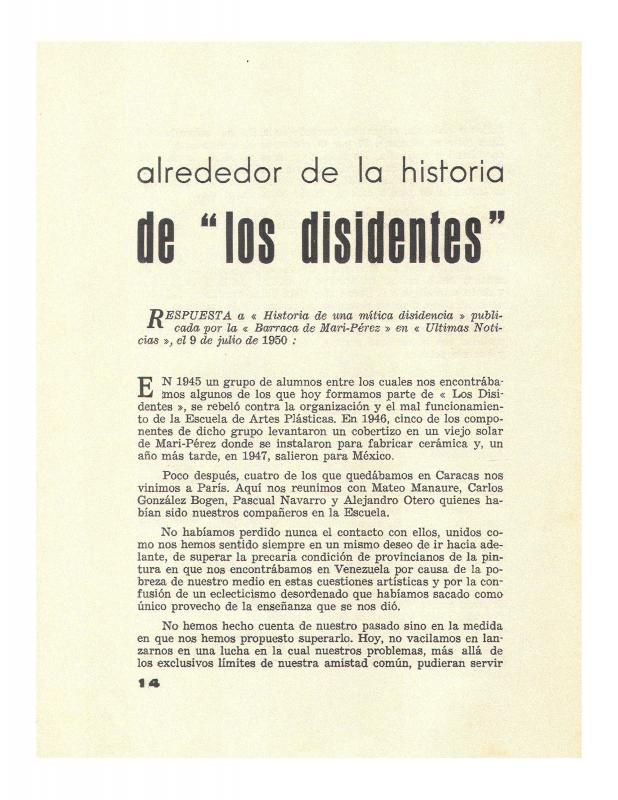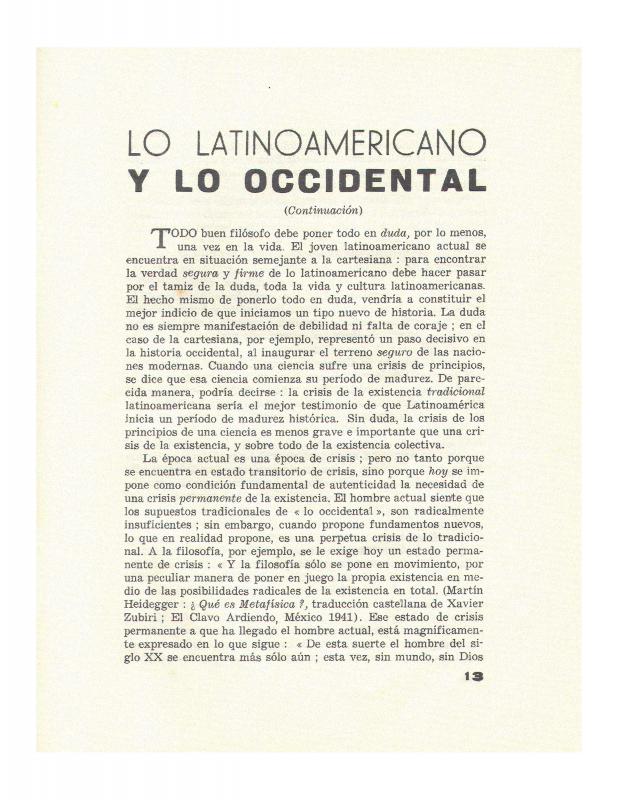Los Disidentes was a group created in Paris in 1950 by a group of Venezuelan artists and writers that lived in the city between 1945 and 1952. From the French capital they intended to fight against the official education taught at the official Escuela de Artes Plásticas de Caracas, derived mainly from landscape art and nativism, specifically. True to their name, Los Disidentes intended to renew traditional and academic art beliefs through the assimilation of European abstract art values. Among the artists in the group was Mateo Manaure (b. 1926), who wrote this text [see doc. no. 813569], Alejandro Otero [doc. no. 813625], Pascual Navarro, Luis Guevara Moreno, Carlos González Bogen [doc. no. 813695], Narciso Debourg [doc. no. 813597], Perán Erminy [doc. no. 813463], Rubén Núñez, Dora Hersen, and Aimée Battistini, in addition to then-philosophy student J. R. Guillent Pérez [doc. no. 813478]. They were joined, subsequently, by other national artists such as Armando Barrios, Miguel Arroyo, Oswaldo Vigas, Omar Carreño, Alirio Oramas and Régulo Pérez. They published a magazine, naming it as the group, Los Disidentes, which produced as far as five numbers, it being the primary source for disseminating their ideas.
Here Manaure makes a career assessment on another fellow artist, countryman and group member Carlos González Bogen (1920−92), that was distinctively seen “dissenting” in context; he highlights the specific steps guiding the artist towards the transformation of his work into the abstract geometric realm. The assessment on González Bogen’s artwork only occurs at the end of the article, when he finds it to be completely purged from the past. It is important to note that González Bogen’s progression is interpreted by Manaure as a sort of initiatory journey where in the end he encounters “the truth,” in other words, abstract art. Manaure even inserts a paragraph where he highlights what he perceives to be are the virtues and leading qualities within this trend, and to his judgment, the primary premise that he, as well as the rest of Los Disidentes, defend and promote. For this reason, in his narrative Manaure assumes and identifies himself with the voice and the sentiments of González Bogen and his achievements.

